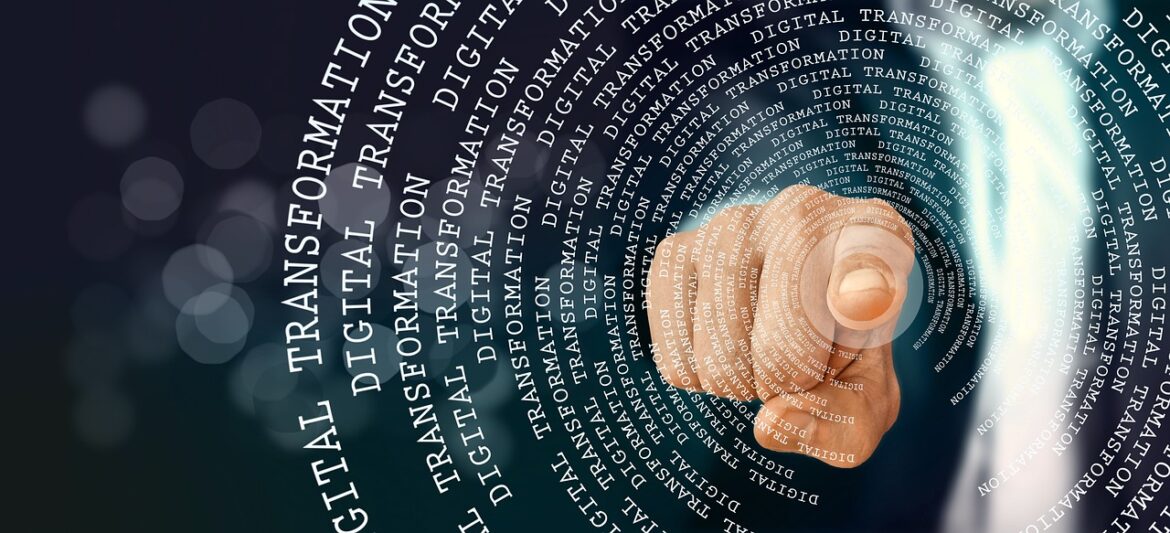Digital transformation in 2025 is not just a buzzword—it’s the lifeblood of thriving businesses in today’s hyper-connected world. With new frameworks surfacing regularly, organizations are navigating this landscape with innovative tools that promise increased efficiency, smarter decisions, and enhanced customer experiences. Let’s explore five of the most talked-about digital transformation frameworks that are driving real change right now.
1. Agentic AI Frameworks: Autonomous Intelligence at Work Imagine a system that not only reacts but proactively decides and acts independently. That’s what Agentic AI brings to the table in 2025. Instead of traditional AI that relies on human input for every move, these advanced agents set goals, carry out tasks, and continuously learn on their own. Industries like manufacturing, logistics, and customer service have seen huge productivity boosts thanks to these intelligent agents.
Take the example of a leading logistics company leveraging Agentic AI to autonomously reroute deliveries in real-time, adapting to traffic or weather issues without human intervention. Beyond efficiency, this raises game-changing discussions about ethics and security, demanding robust frameworks to ensure safe and responsible use.
2. AI & Machine Learning Integration: From Automation to Hyper-Personalization Artificial intelligence and machine learning remain the keystones of digital transformation. They are enabling businesses to analyze massive datasets, automate routine operations, and deliver hyper-personalized customer experiences.
Consider how retail giants use AI-powered analytics to track individual shopper habits, then tailor promotions and recommendations accordingly—boosting sales and loyalty. However, fast adoption comes with challenges like workforce displacement and privacy concerns, meaning frameworks now must weave in ethical safeguards.
3. Blockchain for Trust and Transparency Originally known for cryptocurrencies, blockchain has evolved into a transformative technology across sectors. By creating immutable, decentralized ledgers, blockchain frameworks greatly enhance trust, transparency, and security.
For example, supply chains adopting blockchain can now provide customers with verifiable information about a product’s journey from factory to shelf, ensuring authenticity and ethical sourcing. Banks and insurers use blockchain to streamline claims, cutting fraud and paperwork.
4. Cloud-Based Integrated Platforms: Seamless Efficiency Like AstraZeneca’s Journey Big names are racing to unify disparate business operations into integrated digital platforms hosted in the cloud. AstraZeneca’s rapid adoption of ServiceNow’s cloud platform is a standout success story.
Within four months, AstraZeneca standardized and automated IT and other business processes onto a single platform, empowering over 51,000 employees globally. Features like a self-service portal simplified everyday tasks, freeing IT for strategic initiatives. This integration showed how digital frameworks can do more than IT upgrades—they reshape entire organizational efficiency and agility.
5. Modular Development & Open Ecosystems in Trading and Finance Financial trading applications are embracing modular, flexible frameworks that allow rapid UI development, integration with third-party tools, and resilient multi-region deployments.
Devexperts’ DXwidgets framework, for instance, uses a library of customizable components for faster, cost-efficient UI creation, while maintaining high stability and scalability. Open APIs invite innovation from internal and external developers, creating tailored ecosystems that adapt quickly to changing market demands.
Why These Frameworks Matter Now The footing for digital transformation in 2025 is solidly grounded in real-world application. Companies like AstraZeneca show how integrated platforms can vastly improve operational flow and employee experience. Agentic AI frameworks personify the shift from automation to autonomy, marking a new era of intelligent systems.
Meanwhile, AI/ML and blockchain frameworks reinforce the twin pillars of insight and trust in a digital-first economy. And the financial sector’s push for modular development underscores the demand for flexibility and speed.
Looking Ahead Success in digital transformation isn’t about chasing every new tech fad; it’s about thoughtfully adopting frameworks that align with your mission and workforce capabilities. If you picture your company as a ship navigating the vast ocean of the digital era, these frameworks are your advanced navigation tools—guiding you toward innovation, resilience, and success. Embracing them with a clear strategy and ethical mindset will transform digital ambitions into lasting value.
In summary, 2025’s digital transformation is a mosaic of intelligent automation, cloud integration, trusted data, and customizable ecosystems. These frameworks provide accessible paths for organizations to rethink operations and outpace competitors in an ever-evolving marketplace.
References:
- https://nubiapage.com/top-10-most-digital-transformation-trends-in-the-world-2025/
- https://a-teaminsight.com/blog/nine-leading-platforms-and-frameworks-to-support-trading-application-development-in-2025/?brand=ati
- https://www.globenewswire.com/news-release/2025/06/17/3100379/0/en/Digital-Transformation-Market-Forecast-Report-2025-2035-AI-Anticipated-to-Outpace-Growth-as-Cloud-Solutions-Dominate-the-Digital-Transformation-Landscape.html
- https://seo.goover.ai/report/202506/go-public-report-en-d2290a02-79cd-41d4-a641-fa5cd2bf0292-0-0.html
- https://kissflow.com/digital-transformation/digital-transformation-challenges/
- https://www.dotsquares.com/press-and-events/astrazeneca-digital-transformation
- https://unfccc.int/sites/default/files/resource/sbi2025_04a01_adv.pdf
- https://bermont.digital/blog/harnessing-custom-software-development-for-leading-ai-solutions



